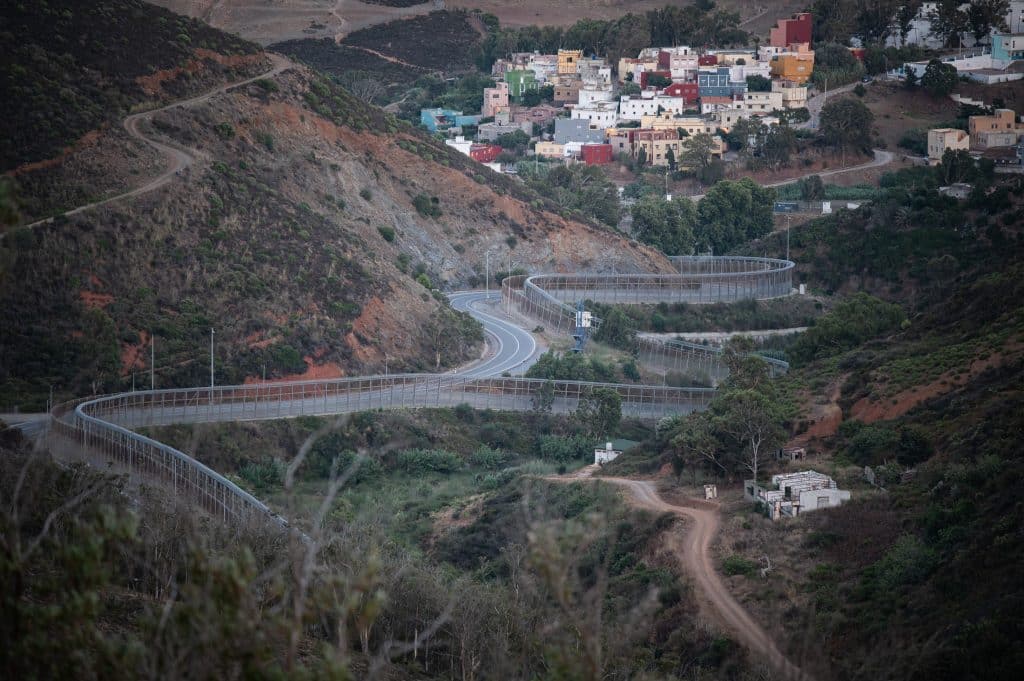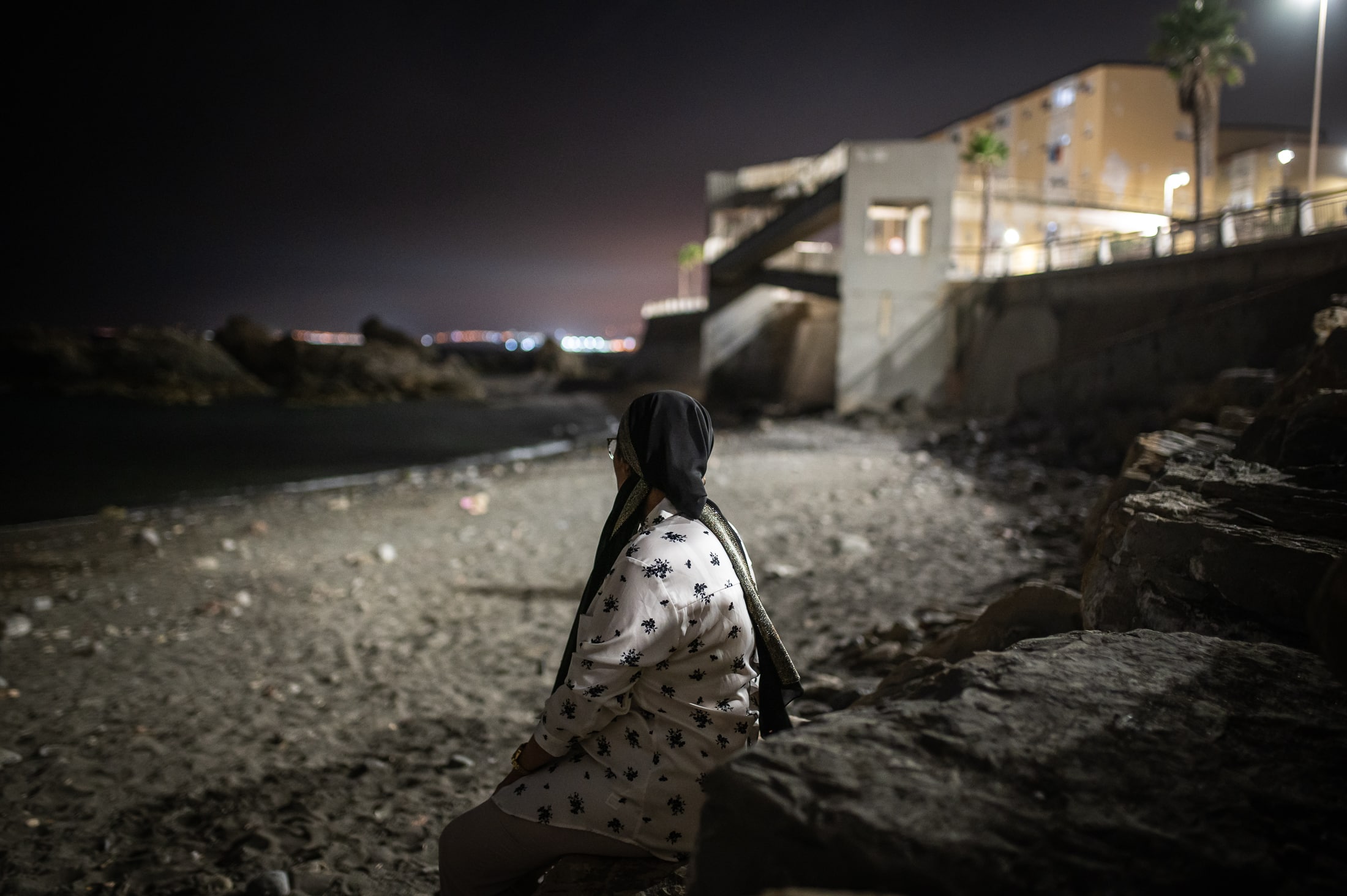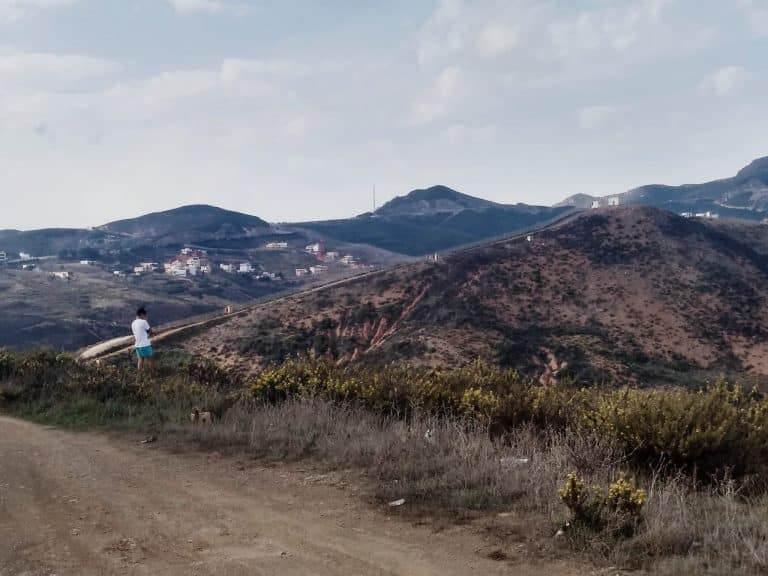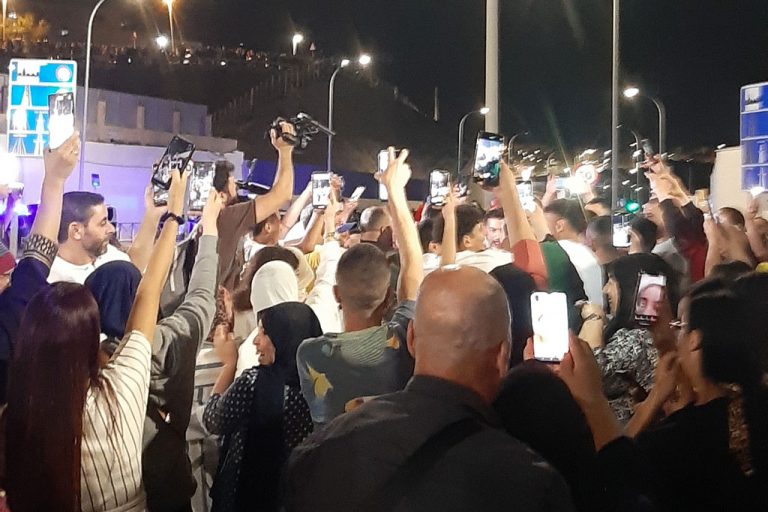By Celia Martín / Photos Rafa del Barrio / Translation Clemen Talvy
Amira (fictitious name) is from a small village near Marrakech. She came to Spain when she was 14 years old, fleeing a situation of abuse and exploitation. Her aunt mistreated her and forced her to work from dawn to dusk doing all the household chores. She had no support from her mother either, because as Amira tells us, she was abandoned when she was a child. Amira could not go to school and when she was around 14 years old, they tried to forcibly marry her off to a man much older than her. It was then that she decided to ask for help from a sister of hers who lived in Ceuta in order to escape from this situation and from a destiny that she had not chosen.
So, after a migratory journey that is extremely difficult for anyone, but even more so for a minor, she arrived in Ceuta, hoping to find a safe place where she could live and start a new life away from abuse and mistreatment. Her sister in Ceuta tried more than four times to get Amira’s papers in order but, as she tells us, her request was denied each time under whichever pretext. Even when Amira was still a minor during these four attempts, the institutions failed to protect her and she was deprived of her papers and of being able to go to school. Amira tells us she can neither read nor write, and all her knowledge is based on her own life experience.
Meanwhile, Amira tried to work, and after ten years of working now and then without a contract, she finally managed to find a family who promised to give her a contract so that she could regularize her situation.
LABOUR EXPLOITATION IN SPAIN
After 20 years working in this house as a domestic worker and caregiver, she still does not have a contract and this forces her to live in this Spanish city without documents to regularize her situation. She currently works around 30 hours a week and earns barely €450 per month, and she has no right to holidays or social security —which means that she has to pay for all her health services. Amira has a serious heart-related problem and, despite her low salary, she has had to pay for all the medical visits and operations that have been necessary to treat her illness.
Amira tells us that she has tried by all means to regularize her situation and live with dignity in Ceuta, but all she has received from the institutions are useless and partial answers. Without papers she cannot access health care; without papers she cannot get a contract; without papers she cannot regularize her situation… and this has been going on for 30 years, without options of improving her life.
Amira wants to live like any other citizen, but the bureaucratic and administrative obstacles against migrants that rule life in this border city relegate Amira to live in the underground economy —she cannot pay contributions to be eligible for retirement and she cannot access either all the resources to which citizens in Spain are entitled.
As we have already mentioned, migrants and asylum-seekers who want to settle in Spain have to face endless obstacles before they can live in safety and in a regular situation. Amira claims to be fleeing from misery and mistreatment, from few or no opportunities in Morocco, she is only trying to find a way in which she can develop as a human being but, unfortunately, she says, she has no rights here nor anyone to help her.
LEGAL EFFORTS SEARCHING FOR A SOLUTION
In the face of this situation and of the failure of the institutions to provide answers or advice, Amira decided to hire a lawyer that could help her explore new ways. Unfortunately, the first lawyer disappeared, she tells us, after charging her 3000€ for his services. The second one has already received €1500, but seems unconcerned and is not giving her any answers. According to Amira, this man always claims to be on vacation or out of Ceuta and tells her he will look into it, but today, two years after hiring his services, she is still in the same administrative situation.
In the middle of the COVID outbreak Amira got sick, and although she managed to recover, she had to pay 335€ for staying one night in hospital. She also has to pay for medical care to treat the side effects of COVID that she suffers, such as a chronic pain in her right leg. Amina says that she must have spent around €7,000 since 2017 in lawyers, doctors and administrative costs —and that’s counting only the last few years.
THE BORDERS BETWEEN SPAIN AND MOROCCO CLOSED IN 2020 AND THE SITUATION GOT MORE DIFFICULT

With the closure of the borders by the COVID —a closure that continues to this day because the borders were reopened in May 2022, but with many restrictions, leaving many people without the possibility of crossing the line that divides two countries—, Amira was unable to renew her Moroccan passport.
It must be noted that before the pandemic, the borders were open, with certain requirements, for people from the neighboring towns, so there were people who worked in Ceuta and slept in Morocco, and they could exit and return to their country at ease. With the closing of borders many people were trapped either in Ceuta or in Morocco and lost their jobs or were separated from their family and their home. Now that Amira’s passport has expired, she cannot return to Morocco to renew it, and she cannot go to the consulate in Algeciras either, since she cannot cross the Strait of Gibraltar on a ferry without papers. As a result of the expiration of her passport her bank account has been frozen.
After years and years full of difficulties and adversities, when Amira found out that her bank account had been frozen, she developed an anxiety-depressive disorder with suicidal ideation that persists today. Because of her low salary and all her medical and legal expenses, it is very difficult, if not impossible, for her to afford a psychologist to take care of her mental health as well.
Now, she has decided to contact us in the hope that telling her story will echo what people in an irregular situation are going through in Ceuta, and in the hope of finding a new ’door’ through asylum. Asylum is denied in most cases, and the simple fact of being born in Morocco is almost decisive in it being denied. Refugee status is granted when a person is persecuted in his or her country for reasons of ethnicity, religion, nationality, gender, membership of a particular social group or political opinion. But it does not contemplate other less visible forms of violence such as few life opportunities in one’s country and the null capacity and will of the institutions to guarantee the security of its citizens, even when they are reasons for forced and not voluntary migration.
Even so, Amira will not hesitate —and neither will we— to try in every possible way to change her situation. Thank you, Amira, for telling your story. Thank you for wanting to share it with us and for wanting to make it visible in order to publicly denounce the racist administrative violence that reduces you and pushes you to live on the margins of society, without guarantees or life opportunities.
From NNK, as we have been doing for some time now, we will continue to support migrant people and to denounce the xenophobic and racist policies that make it impossible for them to live as human beings and enjoy all their rights.





